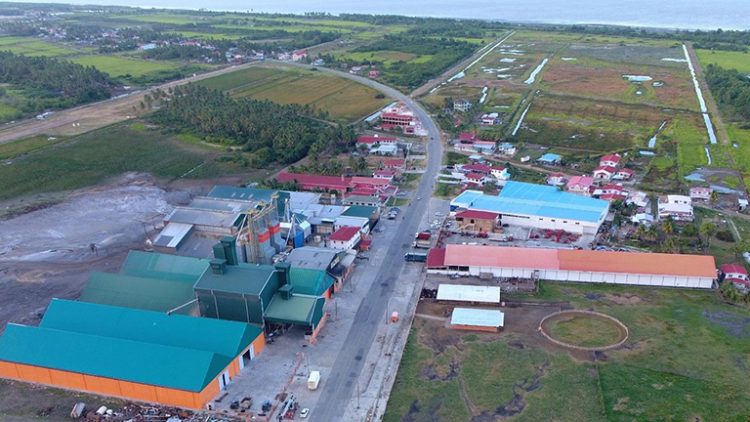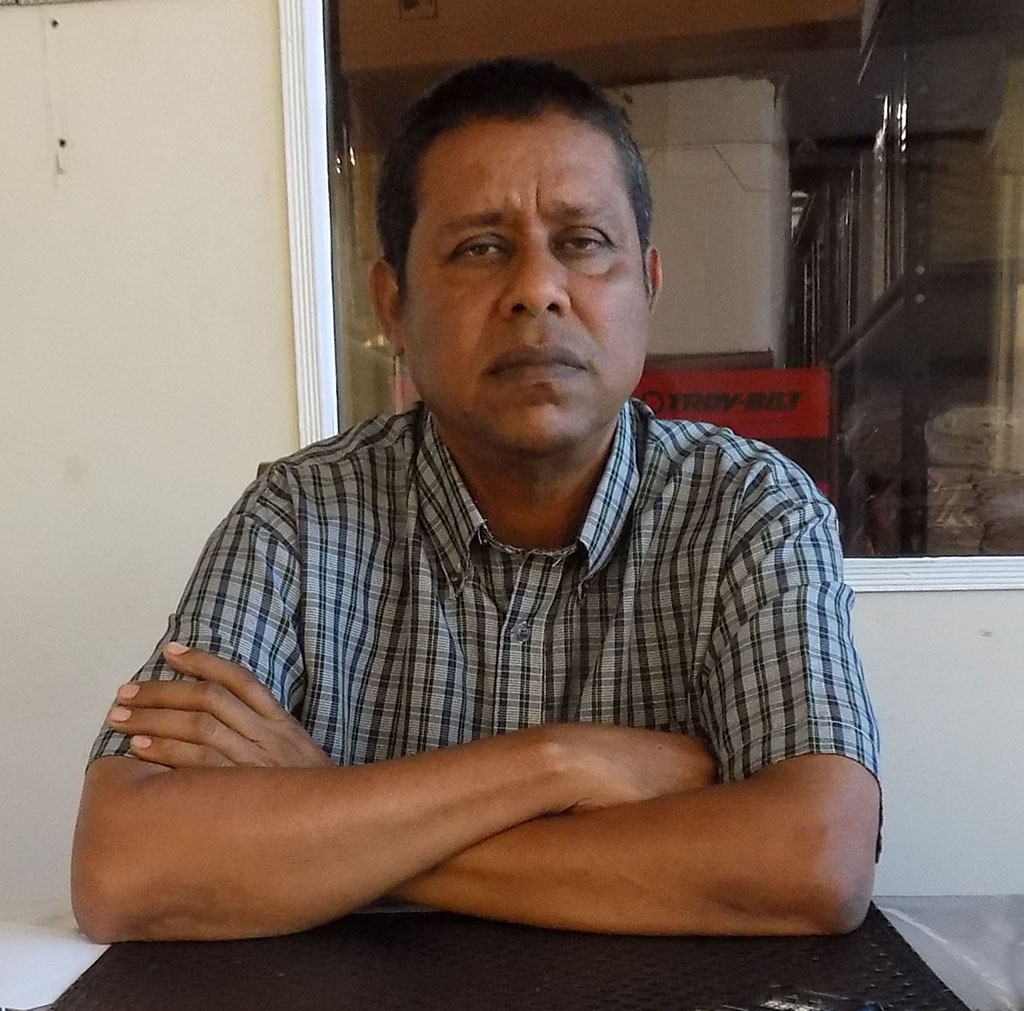To appreciate the national significance of the country’s most high profile rice milling company, Nand Persaud & Company Ltd. You have to cast your mind over the journey that the company has made from a one-tonne per hour rice mill at No. 36 Village, Corentyne, to what it is today, an institution in local rice farming and a company that has done well enough to begin to look outside of itself, to the growth and development of the wider rice industry.
When the company’s serving Chief Executive Officer Mahindra Persaud agreed to talk to us a few weeks ago, we travelled to the No. 36 Village establishment. A queue of more than sixty trucks laden with paddy was waiting to be processed and paid. Some of them had overnighted. They didn’t mind. Nand Persaud & Company is one of just a few local rice milling operations that pay the farmers upon delivery of the paddy.

The promotional ‘blurb’ on the company’s internet promotional piece about Nand Persaud boasting “an ever evolving state of the art operation that incorporates the latest technology” becomes immediately believable once you tour their operations. Some of the sections boast the appearance of a hi-tech, ‘high science’ operation that, at first glance, you would probably not be inclined to associate with a rice milling operation.
In a sense, the company has now come to transcend rice – its Spare Parts Centre, Nand Persaud Agriculture Machinery Department, now more than twenty five years old, catering to the needs of the country’s wider agricultural sector.
In 2001 Nand Persaud & Company moved into other major investments, creating Nand Persaud International Communications Inc. (NPIC); a BPO and Contact Center with locations at Tain, Port Mourant and at Diamond on the East Bank of Demerara. Arguably, its most prestigious initiative to date has been its collaborative work with the University of Guyana to establish a soil-testing laboratory at the Tain campus which, in effect, will allow the company to paint with a much broader brush within the agricultural sector.
Another of its subsidiaries, NPG Packaging & Plastics was founded in 2005 at Wellington Park, Corentyne, Berbice, its focus being on the creation of packaging material for the various sectors.
In 2009 Nand Persaud & Company moved to respond to farmers’ demand for affordable seed, fertilizer and pesticides, launching Nand Persaud Seeds & Pesticides in 2009. This new venture was created to provide a line of credit to help the farmers and still does today.
In March 2013, the company took yet another significant investment step, launching Amazonia Rice Invest-ment Inc. and the following year it launched the first of two Wholesale/Retail outlets in Rose Hall Town. A second outlet location was opened in 2017 in Corriverton.
In 2016, consistent with a family passion for horseracing, the company created the Nand Persaud Stables with a view to providing leadership for the sport in Berbice.
Having by now, over more than a decade been focusing aggressively on diversification, the company established Flexotech Inc., a polymer manufacturing company, in 2016. Polymer is used in a range of packaging products including biodegradable bags and plastic cling film packaging by a wide range of industries within Guyana and the Caribbean. Another of its high-profile projects, Green Power Solutions Inc. was created in 2017, envisaged as a potential leader in the national shift towards renewable energy.
Last year the company created the Nand Persaud Foundation, a charitable organisation dedicated to providing support for local social, cultural, and environmental initiatives.
The rice industry, however, remains the company’s base and setting aside its collaboration with the University of Guyana in pursuit of the establishment of a $40 million laboratory for soil testing and other experimental work in the agricultural sector for soil testing, the company has also been looking outward for rice markets in Latin America.
In 2017 Nand Persaud & Company made its way into the national headlines once again by sealing a deal that recommenced local rice shipments to Cuba for the first time in forty years. The high-profile deal, announced in a statement from the Ministry of Foreign Affairs in Guyana, saw a September 2017 visit here by representatives of the Cuban entity ALIMPORT following the signing of a contract two months earlier. Shortly thereafter, the first shipment of 15,000 metric tonnes of rice was shipped to Cuba.
At a time when the local rice industry faces a range of challenges associated with international market constraints, the need to expand the sector and concerns over other issues including the need for further aggressive investment in infrastructure, Nand Persaud & Company continues to be an anchor for the industry in Berbice and the country as a whole. Even before the anticipated opening of the multi-million dollar soil-testing facility at the Tain campus of the University of Guyana, which is scheduled for October this year, the company is beginning to attract praise from farmers in Berbice, acutely aware as they are of the value which the new facility will add to the agricultural sector as a whole. Rice is not the only food crop that will benefit from the enhanced soil-testing capability which the new laboratory will provide.
When the Guyana Review visited the Corentyne operations of Nand Persaud and Company late last month, we found trucks laden with paddy parked close to the company’s rice mill waiting to sell their paddy. Conversations with the farmers revealed that over time, they had established a level of confidence in the local rice giant that encouraged them to wait for up to two days to sell their paddy knowing that payment would be immediate. In the wider local rice industry, long-delayed payment to farmers has become an occupational hazard of the industry so that the prompt payments afforded by Nand Persaud and Company is not a feature that they take for granted.
Mindful of the nexus between the well-being of the farmers and the long-term prosperity of the Nand Persaud & Company, its CEO has, over time, become one of the louder voices for the industry as a whole. In Berbice, he has established a reputation as a lobbyist and advocate for increased state investment in state resources. That apart, he has established an impressive knowledge of the challenges of the rice industry in Berbice and what it would take to remedy those challenges. Meanwhile, the company as a whole, has its sights focused on the vagaries of the global rice sector, always on the lookout for opportunities to expand its international market share.





